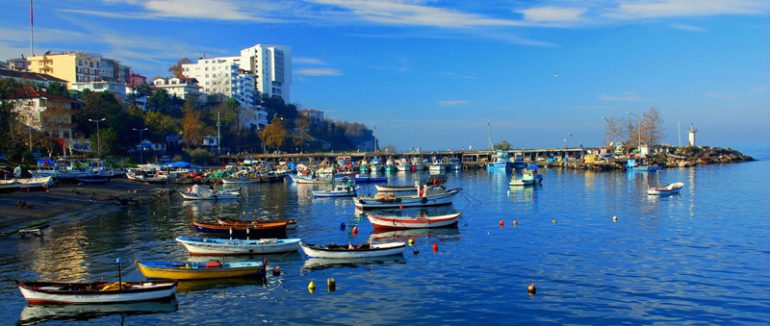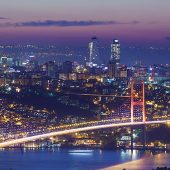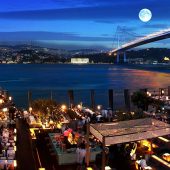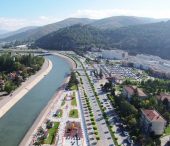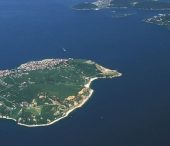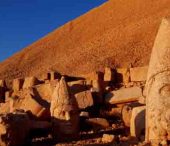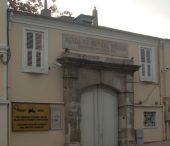Düzce is the capital city of Düzce Province in Turkey.
Overview
Area: 1065 km² Population: 156.326 (2000) Düzce is the eightyfirst and the last province of Turkey which is situated between the Capital Ankara and Istanbul. It has been greatly effected by the Marmara earthquake (Aug.17,1999) and (Nov.12,1999) Düzce earthquake. It is known for its ancient monuments and it was called "KONSOPA" in ancient times.
Duzce is just situated between Ankara and Istanbul; Ankara is 240 km away to the East and Istanbul is 228 km away to the West. The road of D-100 passes through Duzce and TEM Highway passes around it.
Duzce is placed into the plateau of The West Blacksea coast. The city is surrounded to the West by Sakarya, to the Northeast by Zonguldak and to the East by Bolu. The distance from East to West is 23 km and from North to South is 20 km. It opens to the Black sea with the valley of Buyuk Melen on the Northwest. Nearby are also some tourist centers and popular attractions such as Abant, Kartalkaya, Yedigoller, Golcuk and Akcakoca.
As the climate, although the summers are hot and winters are cold, it changes between the West Black Sea and Central Anatolian climates. Main agricultural products in Duzce are: tobacco, maize wheat, nut and many kinds of wheat and vegetables.
The geographical location of Duzce is very attractive for nature lovers and adventure seekers. It has vast forestry area, plateaus, waterfalls, long seashore, beaches, natural caves, rafting on Big Melen river, sailing, water sports and fishing in the Lake of Hasanlar Dam, Efteni Lake with 150 kinds of birds, and the Karduz Plateau which is covered with snow all year round.
Historical Konuralp is 8 km away north of Duzce, first settlements there are going back to 3rd century BC. Until 74 BC it was one of the most important cities belonged to the Bytinia State, which included Bilecik, Bolu, Sakarya, Kocaeli and it was conquered by Pontus and then by The Roman Empire. During the Roman period the city was influenced by Latin culture, and it changed its name to Prusias ad Hypium. Later on Christianity affected the city and after the separation of the Roman Empire in 395, it was controlled by the Eastern Roman Empire (the later Byzantine Empire).
Konuralp Bey, one of Osman Gazi's commanders, was ordered to conquer Duzce and its surroundings to the Ottoman Lands. In the 14th century he captured Duzbazaar (Duzce) and Roman Prusias after a battle against the Byzantines. The first Ottoman administrators in Duzce were Konuralp Bey, Sungur Bey, Semsi Bey and Gunduz Alp. During the late 16th century villagers choose this location as a market place and that's why it was called Duzce Bazaar in the centre of the Plain.
During the Ottoman Empire Duzce provided the timber of the Navy and it became an important centre of transportation between Istanbul and the Eastern cities such as Sivas and Erzurum. At the 18th and 19th centuries the tradesmen took the control of Duzce and commerce flourished.
At the period of Abdulaziz and Abdulmecit sultans, immigrants from Caucasus, East Black Sea, East of Anatolia and The Balkans increased the population of Duzce. The government provided them free land. Those who came from other places called the names where they inhabited from: Caucasus, Abhaz, Laz, Georgian, Hemsin, Batum, Hopa, Tatar, Bosnak, Albanian, Bulgarian etc. Especially thanks to the Armenians and the Greek who settled down in Duzce and started to trade, the town had a lively life; it had 137 villages and 66,618 homes with the population of 36088 at the times of Abdulmecit II.
After the Republic the city had a great development on Industry and Trade. Because it is near to the big cities, ports and natural resources, easy transportation, natural beauties and social structure makes it too attractive for the investment. Duzce is one of the most developed cities on industry in Turkey. Especially it is famous for timber and sports and hunting guns to the World. Today main economic sectors are; forestry production, automotive parts, textile, hunting and sports guns, cement, pharmaceutical products, nuts and tobacco. There are about 100 factories working in this sectors such as timber plants, milk product plants, animal food plants, flour plants, food and packing plants etc. Not to disregard agriculture as well.
It was hit by the 1944 Duzce Earthquake, 1957 Abant Earthquake, 1967 Adapazari Earthquake, and in 1999 it was destroyed by the 17th August Izmit Earthquake. In the end it was demolished too badly by another earthquake on 12th of November 99 at 18:57. The magnitude of the earthquake was 7.2 (Richter Scale), lasted for 30 seconds, killing 845 people and injuring over 5,000. After this it's recognized as the 81st city of Turkey with the agreement of the Council Of Ministers so that Duzce could get over its damages with the Governmental aid.

